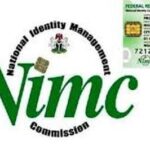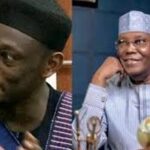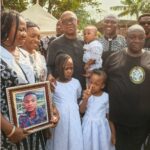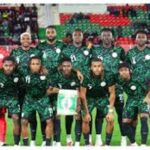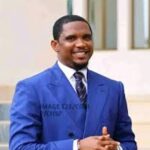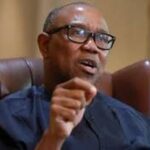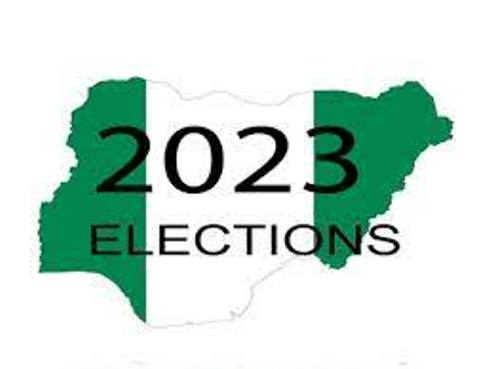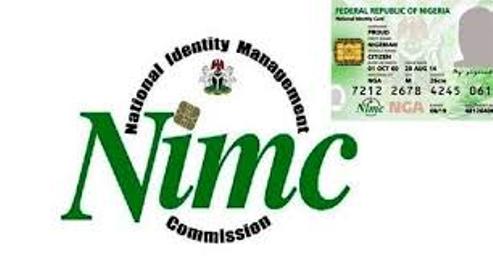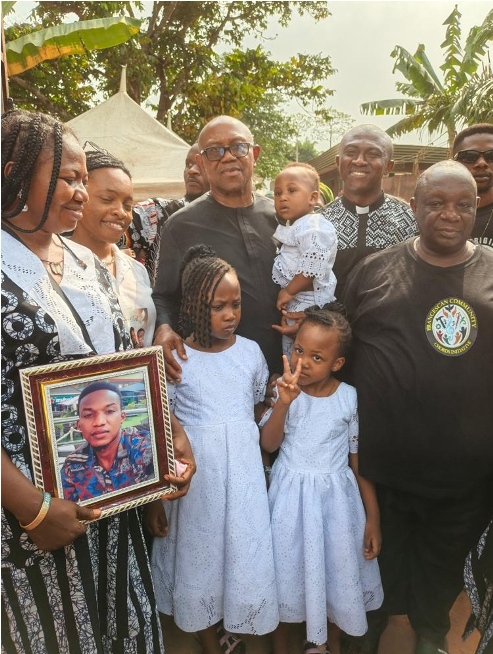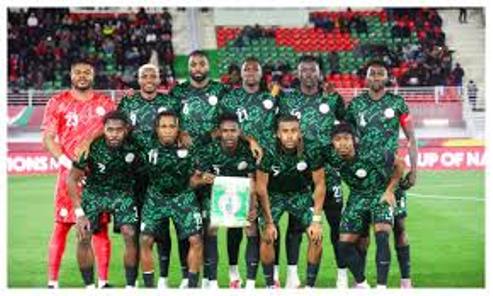By Biodun Omojola
LAGOS FEBRUARY 22ND (NEWSRANGERS)-Not since the 1993 election, and, to a lesser degree, the 1999 election, have Nigerians and, indeed, the world been so fixated on any Nigerian election. Back in 1993, the major problem facing Africa’s biggest economy was how to get the military out of governance after having ruled for 10 years, beginning in 1983, after a putsch that toppled a democratically elected government. That 1993 election threw up two outcomes: the freest election ever held in the country’s history and an additional five years of military rule. It was after the 1999 election, which was also keenly watched, that the military returned to the barracks and out of governance. Since that election, Nigeria has had six more, with none as free and transparent as the 1993 election. The seventh election since the 1999 polls is being held this February.
That global scrutiny is back on Nigeria in this election year is understandable. Nigeria holds a leading position in African and international political, economic and trade affairs. It is Africa’s most populous country, its biggest oil producer and its largest economy. On the global scene, it has bilateral relationship with almost all the countries of the world. Therefore, what happens in the country is of utmost importance to the continent and the world. So far, Nigeria has escaped intense global scrutiny regarding past elections after the 1999 democratic experiment, but recent happenings in the country have been a tad too much for it to gloss over and so the world is watching with rapt attention.
No doubt, Nigeria has made progress in deepening democracy especially through the safe transfer of power every four years. But the challenges confronting the country have changed dramatically. Thirty years ago, it was how to retire the military to the barracks. Today, the problems are myriad and multi-faceted: insecurity, economic mismanagement, corruption, infrastructural decay, environmental challenges, population explosion and unemployment among others. The common theme running through these challenges is that they are now deeply rooted and on a massive scale with no clear solution in sight. It is, therefore, safe to assume that the incoming administration will have its hands full right from its first day in office.
This February election comes at a time of heavy economic uncertainty for Nigeria. The country is heavily indebted, inflation is trending high as is unemployment, the local currency, the naira, continues its free-fall against the U.S dollar and production figures from crude oil, its major export, continue to drop due to increasing oil theft, a criminal act that is impacting revenue. All these have resulted in a bleak future for Nigerians. Expectedly, they have placed the blame for this firmly at the door step of the exiting administration of Muhammudu Buhari of the All Progressive Congress (APC). Buhari assumed the presidency in 2015 on the promise of changing Nigeria’s economic and security situation but under his two-term, eight-year administration, these seem to have worsened considerably. That is precisely why there is so much focus on the election by Nigerians, locally and in the Diaspora, as well as by the international community.
Without a doubt, there is a heightened interest in the polls. It is, perhaps, the first time Nigerian youths are taking an active interest in a Nigerian election. Rightly so as a significant percentage of the population, about 70 percent, is below 35 years. According to the electoral agency, the Independent Nigerian Electoral Commission (INEC), over 37 million voters, representing 39 percent of registered voters are under 34. Social media has been particularly helpful in raising awareness among young voters and galvanizing them to seek a more participatory role by actually voting: there is a “Get Your PVC (Personal Voters Card)” advocacy drive trending on social media. The presidential candidates too are active on the new media, courting these young voters. This is in addition to the traditional media platforms, particularly TV, where the quest for visibility was high at the onset of the campaign. That has reduced considerably as their surrogates now deputise for them on the media space.
Surprisingly, despite over half the population being under 35, the four leading candidates are all over 60 years old. Cynics have questioned whether they have the physical and mental capability to shoulder Nigeria’s huge problems and deliver. Other presidential aspirants are between the 40-50 year age brackets but are not in serious contention. The leading candidates, who are members of the establishment, are: Abubakar Atiku of the Peoples’ Democratic Party (PDP), a former vice president, aged 76, Bola Ahmed Tinubu (APC, 70), Rabi’u Kwankwaso, 66, of the New Nigeria People’s Party (NNPP) and Peter Obi, 61 of the Labour Party. The latter three are former governors and all four described as being no different from six and half a dozen.
There is, certainly, an anti-establishment fervor running among the electorate and that is particularly evident among the youth. But since Nigerians must elect a president in February, the question is who, among the leading four, will get their votes. Conventional wisdom suggests that the votes should go to the candidate with the most credibility – the lesser evil, if you will – but conventional wisdom doesn’t always apply in Nigeria especially when it comes to politics. All four candidates have their strengths (religion/ethnicity/tribe) and weaknesses (political baggage/personal and health history) so the outcome is a toss-up. Overall, there are 18 candidates vying to become Nigeria’s next president.
It is a wonder that with all the challenges facing the country, the campaign has been devoid of robust discussion and vigorous exchange of ideas among the leading politicians. There is a lot for them to worry about that should have generated good discussions and even better ideas. According to experts, insecurity is endemic, nepotism is not only elevated but well entrenched, environmental and climate challenges are increasing yearly while corruption is full-blown and fiscal management is in shambles. The Covid-19 pandemic and the on-going Russo-Ukraine conflict has contributed to making a terrible situation worse for the country. The electorate wants to know how these challenges will be addressed by the candidates but unfortunately, they, the electorate, are being regaled with insults and rhetoric from the politicians that is akin to comedic skits.
Although some series of debates and town-hall type meetings were organised and held, their impact on the electorate is minimal at best. For one, the media platform is not a level playing field as some candidates were not invited to these meetings (because they are deemed “not popular” enough) while others that were invited found crafty ways to avoid attending (because they deem the organising entity to be blatantly unfriendly to them). To be fair, some candidates braved these meetings and faced the selected audience but, let’s be clear, it wasn’t what the voters wanted which is a slugfest by the candidates that will throw up contemporary ideas on how best to tackle Nigeria’s problems and give an insight on how they intend to govern. That is the very least the candidates owe the electorates.
On the campaign trail, it is no different – there were more insults and personal attacks than dissemination of ideas. And when offered, the ideas are mostly old and repackaged, or ones that are fanciful and lack substance. Evidently, there seems to be no fresh thoughts on how best to tackle Nigeria’s old issues. This speaks volumes as the challenges facing Nigeria will take more than rehashed ideas and rhetoric to solve, more so when the Buhari administration is bequeathing to the incoming administration a debt profile of N77 trillion, dwindling revenue, low crude oil production, growing insecurity and insurgency, high inflation rate, a large army of unemployed youth, environmental challenges and a population that is distrustful of government and its institutions. The departing administration claims to have these problems in check, but the reality belies its claims.
Past elections have been dogged with violence, vote rigging, ballot box snatching and allegations that INEC has been less than transparent. To curb these and other incidence of election mischief, INEC will try out electronic voting and digital transmission of results. These measures were introduced through the recently passed electoral law. The onus is on INEC to deliver a credible election and it says it is determined to conduct a free, fair and transparent election not only at the national level – presidential, senate and federal house – but also at the state (gubernatorial) level including state houses of assembly elections. Although not as keenly watched as the presidential election, the states and houses of assembly elections are equally as important. Local in scope, each state has its own peculiar idiosyncrasies and the campaigns for state elections are as diverse as their idiosyncrasies.
Certainly, the stakes are higher in the presidential polls for Nigerians. But it appears the candidates are more interested in discrediting each other through the exposé of their political, business, personal and health histories than they are of addressing the issue of insecurity, corruption, the environment, infrastructure decay, unemployment and a host of other challenges affecting Nigeria and by extension Nigerians. This is sad. What the Nigerians need now is concrete ideas and not platitudes. This election could be a make or mar election for Nigeria. The country and indeed the world is watching.
Biodun Omojola is the Economics and Business Editor of the London-based news magazine, Africa Today. He is based in its West Africa bureau in Lagos, Nigeria
